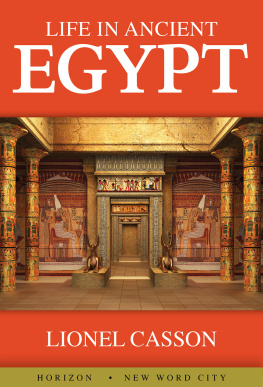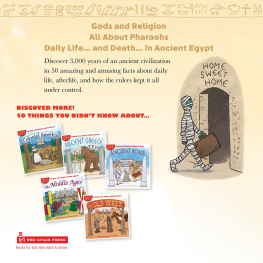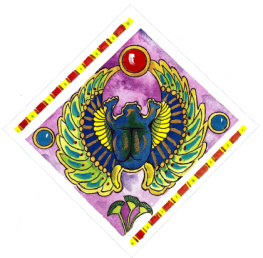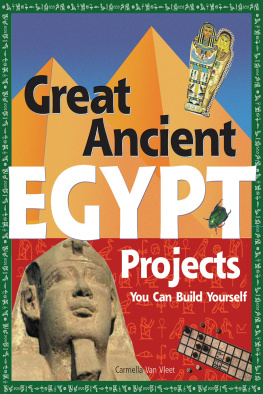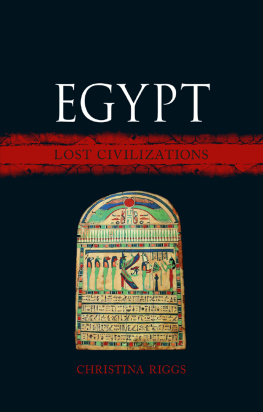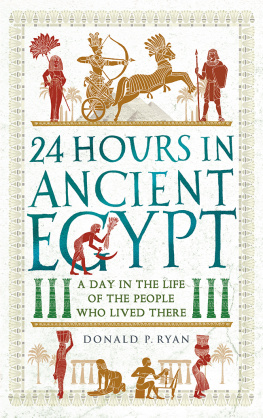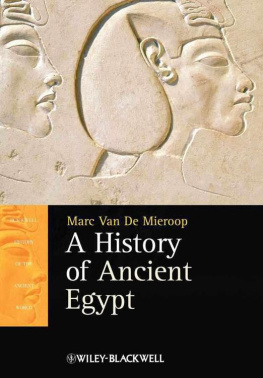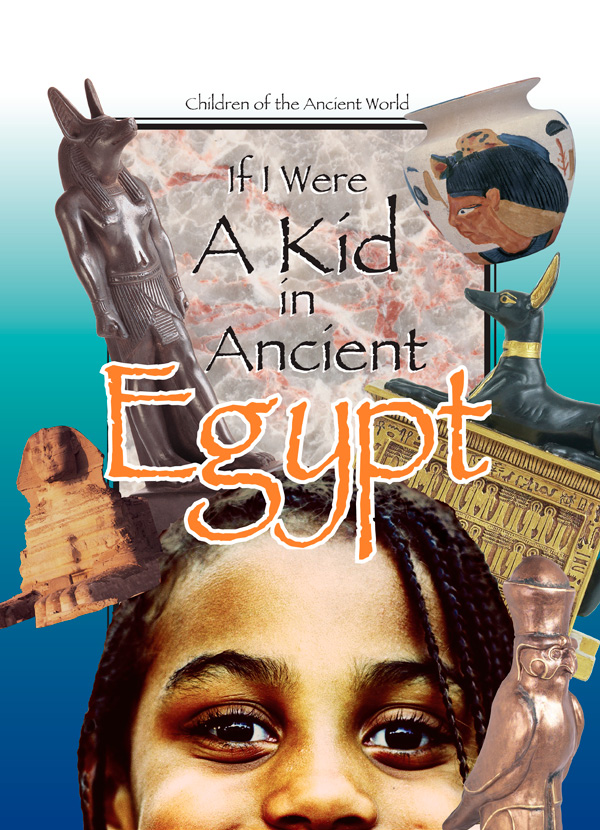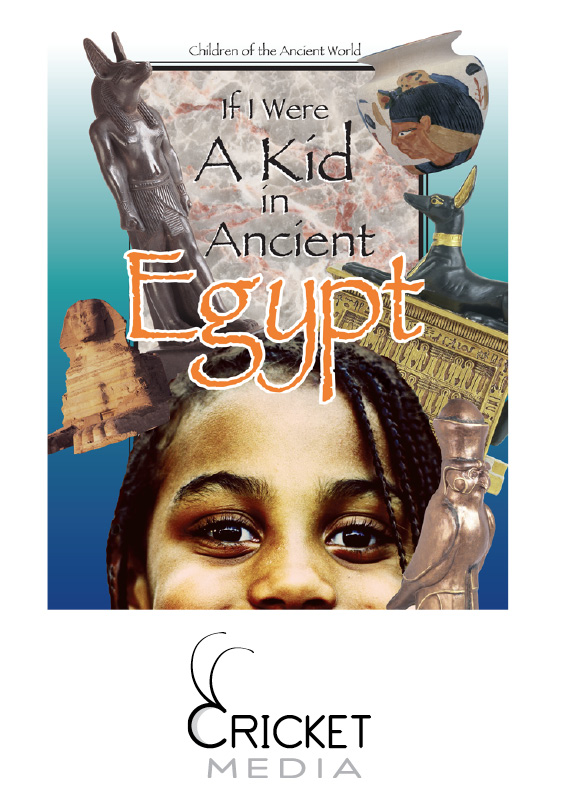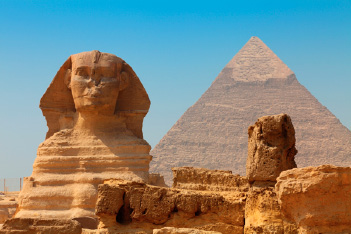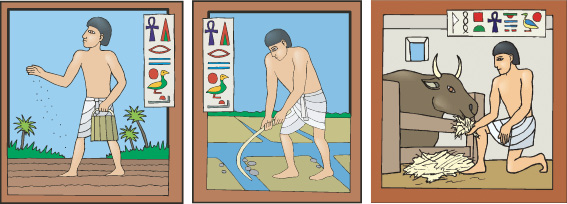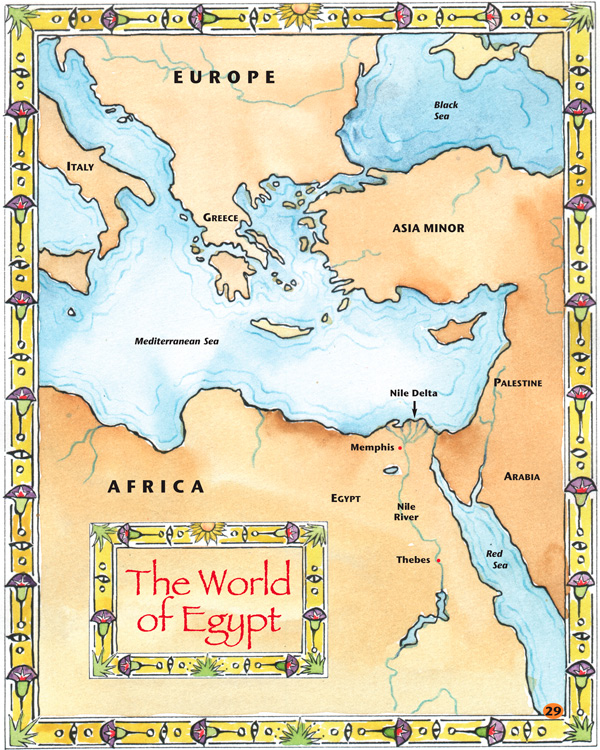If you were a kid in the ancient world, everything would be differentor would it? Imagine living in a place where paper, summer vacation, and board games were a part of your daily life. Sounds like a place near you? It isnt. This amazing place is ancient Egypt. If you lived there, what would your life be like? As an Egyptian kid, you wouldnt wear any clothing or sleep indoors during parts of the year. At school, you would read and write with pictures instead of letters. If that sounds tough, dont worry! Youd have plenty of fun, too. You could relax with your pet monkey or go to a month-long feast. You might even become a king at the age of nine!
So lets begin our time travel by taking a look at some of the ideas from ancient Egypt that we still use today.
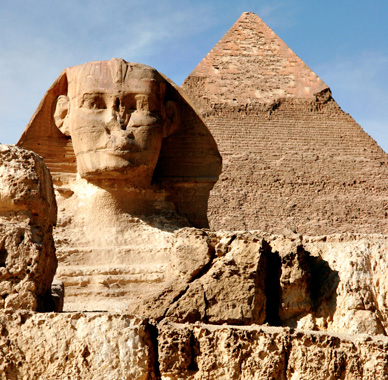
Some of the most familiar things in our modern, everyday lives came from ancient Egypt.
The ancient Egyptians came up with many great ideas, such as the sundial, mummification, cement, the decimal system (counting by tens), and glassmaking. Here are a few more of their great ideas and inventions.
Stairway to Heaven?
The biggest achievements of ancient Egyptians are the pyramids, tombs for the mummified bodies of the dead pharaohs. The largest of these is the Great Pyramid, the only one of the Seven Wonders of the World still standing. No one knows for sure, but the shape of pyramids may represent the slanting rays of the sun, or a stairway to heaven that the dead king could climb to the sky.
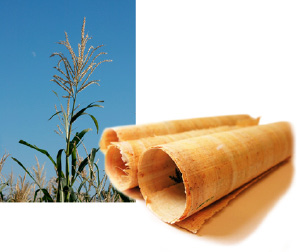
Plant to Paper
The ancient Egyptians made a type of paper out of papyrus, a reed that grew along the Nile River. Writing on paper was a lot easier than writing on stone or wood, and more portable! Papyrus made it easier to do business, and it came to be used throughout the ancient world.
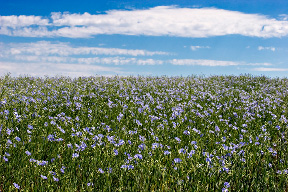
Buds to Duds
Another plant that grew along the banks of the Nile was flax. The Egyptians figured out how to turn flax into cloth. They spun the fibers from flax into threads, then wove the threads into linen, just as we do today. They used the linen for clothes, mummy wrappings, bed sheets, tapestries, and sails, among other things.
Water Works
Egyptians were among the first people to use irrigation, bringing water to dry land through channels or pipes. Every year, the Nile overflowed its banks and water flowed across the fields. But sometimes this was too much water and sometimes too little. They dug canals with dams that let them control the flow of water and take it to areas the floodwaters usually did not reach. Without irrigation, the civilization of ancient Egypt would not have been possible.
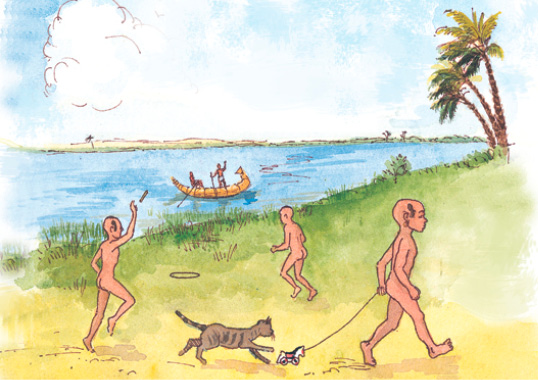
But what was it really like to be a kid in ancient Egypt?
Imagine you are growing up in ancient Egypt during the age of the pyramids, about 4,500 years ago. What is your life like? You probably spend a lot of time with your family. Most children dont go to school, since only a few people know how to read and write.
Your head is likely shaved, except for one lock of hair worn over the right ear. And you dont worry about clothes because you dont wear any!
Whether you are rich or poor, your house is probably made of mud bricks. The size of your house will depend on your fathers job. Is he the king of Egypt, known as the pharaoh? Then your home is a palace with many rooms, though still made of mud bricks. Is he a nobleman or a scribe (one of the few people who could write)? In that case, your house may have a private courtyard with flowers and a fish pond.
If you live in the capital city of Memphis, your father or mother might be a weaver who makes cloth. Maybe they work in a bakery, making bread. In that case, you live in a small house, close to others like yours, with doors that open to a dusty, narrow street.
Life on a Farm
But most likely your father is a farmer. If he is a rich farmer, you may live on a huge farm along the Nile River. If he has a
small farm, you may live in a tiny town near the fields.
All the houses have flat roofs. Because of Egypts hot weather, your family often goes to the roof in the evening to get cool. You may even sleep on the roof.
Wherever you live, it is on the sand. Except for a narrow strip of land along the Nile, everyplace is sand. The green land along the river is too precious to build houses on. Its the only place to grow all of the food for the country.
Because growing crops is so important, most families farm. At harvest time, everyone helps. Your job may be to tie up the shafts of wheat and put them into bundles.
If your father is a farmer, he does not work from June to September. The Nile floods its banks then,
and all of the farmland is covered with water. At that time the pharaoh may order your father to work for him. If not, you have vacation time. Then you might take a boat trip down the Nile with your family. Or you might walk to the next village for a visit, with a donkey carrying your supplies.
Whatever the season, religion is an important part of your life. You probably believe in many gods and wear an amulet or figure of one of them on a necklace. Your parents say this protects you from evil and illness.
Childhood is carefree and happy, but it is short. By the time you are a young teenager, youll be married. After that, youll be expected to live your life just as your parents have lived theirs.
Egypts Kingdoms
Ancient Egypt had a long history, from about 3000 b.c. to 341 b.c. Historians have divided that history into various periods, the most important of which are: the Old Kingdom (or the Age of Pyramids, from around 2686 to 2181 b.c. ); the Middle Kingdom (from about 2040 to 1782 b.c. ); and the New Kingdom (or the Age of Conquest, from 1570 to 1085 b.c. )


